#hospice care provider
Text
Trusted Hospice Care Provider in Texas | Compassionate End-of-Life Support
Living Waters Hospice, Inc provide a variety of services to suit the patients' physical, emotional, and spiritual requirements as a dependable hospice care provider in Texas. In order to ensure the greatest standard of care and comfort, our skilled healthcare professionals and carers provide expert pain management, symptom control, emotional support, spiritual counselling, and aid with everyday activities. Our team is dedicated to offering patients and their families empathetic support because of this. We work hard to establish a supportive environment where patients can pass away with nobility and respect, surrounded by their loved ones.
#hospice care provider#hospice care near me#Routine-in home Care Services#hospice care center near me
2 notes
·
View notes
Text
Bangalore's Trusted Hospice Care Provider: Choose Well
Welcome to the world of hospice care in Bangalore, where choosing the right provider is paramount for ensuring comfort, dignity, and compassionate support for patients and their families. In this bustling city, finding a trusted hospice care provider becomes crucial to meet the unique needs of individuals facing end-of-life journeys. With a multitude of options available, it is essential to navigate this decision wisely.
Read this Blog:
#Hospice Care Provider#Hospice Care#Hospice Care service#Hospice Care Provider in bangalore#Hospice Care service in bangalore#sukino healthcare#sukino
0 notes
Text
Hospice
Website: http://www.serenityhospiceprovider.com/
Address: 2139 Tapo St Suite 212, Simi Valley, CA 93063
Phone: +1 805-261-1006
Serenity Hospice Care Provider is a licensed, JAHCO Certified Hospice Care provider. Our hospice care is dedicated to providing you with dignified care that promotes quality of life, comfort and convenience. We respect your personal healthcare and treatment decisions and strive to support you and your family. Good Heart Hospice & Palliative Care focuses on maximizing comfort, reducing suffering and allow individuals to maintain their dignity. We can provide HOSPICE CARE with ZERO Out of Pocket Cost to You. Give us a call at 805-522-5506.

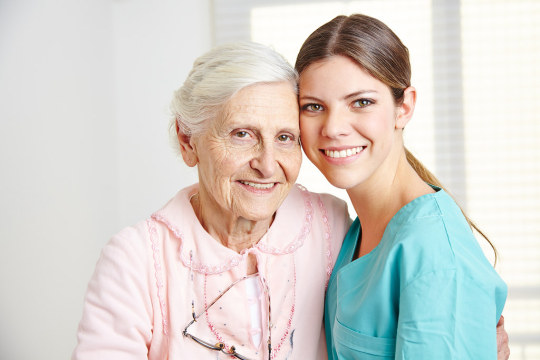
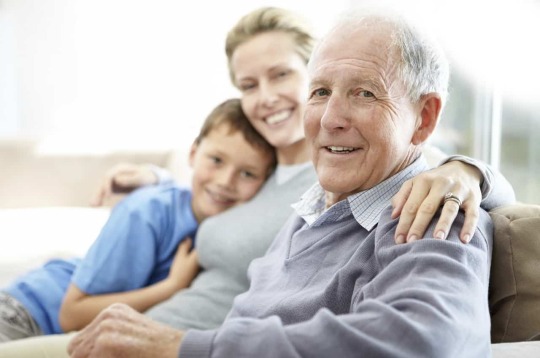
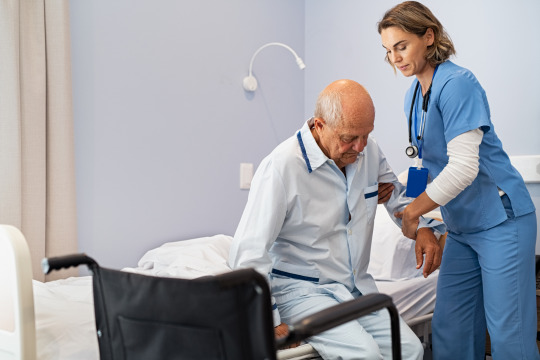
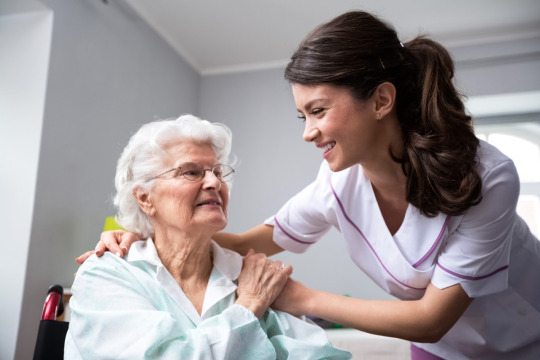
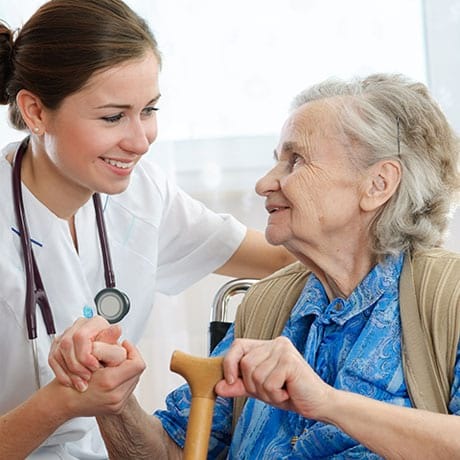

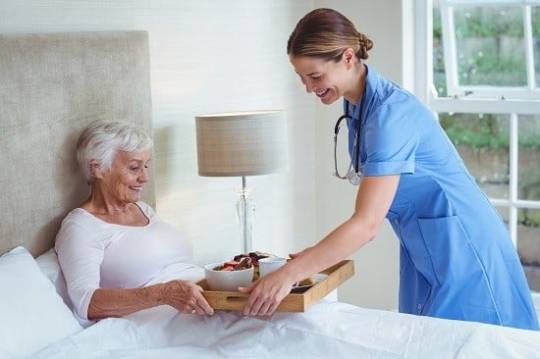
#hospice in Simi Valley#hospice care in Simi Valley#hospice near me#hospice care at home#hospice care provider#Simi Valley Hospice#Hospice los angeles#hospice care los angeles#Simi Valley hospice care#hospice care Simi Valley
1 note
·
View note
Text
it's the first night i'm in bed before midnight (read: 2am) in ages and my sister's cat frew up. she's currently on my lap so ig i'm sleeping sitting up
#she should be here#ik dogsitting is her bread and butter rn but her cat keeps getting sicker and she doesn't delegate care well#so we're all just scrambling to donour best and keep her alive + comfortable#the cat has started to prefer me when my sister is home which sucks but i get it#im basically providing hospice#shouting into the void here
7 notes
·
View notes
Text
Getting a job in the care sector like. It’s only 6 months of free training to be a caregiver?? I’m sorry?
#tbf im not going into the medical side of it at all#I just want to provide help and assistance#aiming for hospice caregiver (which sounds grim but it’s important to me)#and I’ll still have my job at the theatre/library/museum#but I found out you can’t sail on tall ships with epilepsy and that was a 6 month course as well#so end of life care it is then!#(more than happy to work with pediatric patients but I know more about hospice so)#anyways#YOU ARE TRUSTING ME WITH A HUMAN BEING IN NEED OF A CAREGIVER AND ONLY SIX MONTHS??#I mean. okay#hopefully I won’t be working in the hospital often or at all#at home care is just. it’s nicer. also my hospital is severely underfunded and a general nightmare#been a patient enough times there to know
2 notes
·
View notes
Text
What is a Skilled Nursing Facility? - Suncrest Hospicecare
A skilled nursing facility, often referred to as a nursing home or convalescent home, is a residential setting that provides round-the-clock medical care and rehabilitation services. These facilities are equipped to handle patients with various medical needs, offering a higher level of care than what is typically available at home or in an assisted living community.When searching for a skilled nursing facility, it's crucial to consider the specific needs of the individual and the services provided by the facility. Take the time to visit potential facilities, ask questions about their staff, amenities, and care plans.
#hospice care in california#hospice care facilities near me#skilled nursing homes near me#hospice providers#hospice services#medicare nursing home coverage#home health and hospice#hospice near me
0 notes
Text
Save one life, save the whole world
My name is Muhammad Ibrahim. I work as a high school teacher. I am a strong father from Gaza. I have three princesses from my children. I mentioned that I am strong because I try to provide happiness and protection for my family in the midst of sadness and death, and I am looking to shed light in the darkness. I am strong. I do not want to show weakness to my children, but to be honest I have no idea how strong I can pretend to be. I'm not strong. I'm sad, broken, devastated, and terrified at the thought of losing someone in my family.

Since the first hour of October, we have been displaced 6 times. It is a terrifying thing. When you see the planes dropping leaflets on us asking us to evacuate the area, you are asked to evacuate within a specific time. At this time, you are unable to think about what you want to do, and where we will go. While preparing the necessary bags, shells and missiles are raining down on us. Bullets from airplanes. At this moment, you can only escape and save your life and the lives of your children


After more than 300 days of resisting the heinous genocide, my family and I are working to support ourselves through community relief and mutual assistance efforts that stopped three months ago due to the occupation taking control and occupying the city of Rafah.
With the constant risk of death due to malnutrition, dehydration and pollution, diseases are increasing day by day. Like all residents of Gaza, we depend on donations to purchase the goods and services necessary to keep us alive, heal and recover.
One dollar could make a difference in my life. Your skip could cost us a life
Let me tell you about living in the camp, it is like a prison, and even worse, there is no fresh air to breathe, no clean water for daily use and of course to drink, no electricity and no healthy food, only infectious diseases, skin rashes, insects and scorpions.
There is no privacy as the tents are close together, and no quiet, only shelters between you and your neighbors. I stand in long lines under the hot sun for water, for bread, for hospice (food distributed to the displaced in the camp) and even for bathrooms. Public.

More than 300 days of targeted attacks and genocidal tactics have deliberately destroyed life's infrastructure: energy sources, desalination plants, bakeries, factories, hospitals, schools, sewage systems, roads, farmland, homes, my home, and my workplace. Everything has already become a terrifying ghost town

The Gaza Strip has become an uninhabitable biological zone, due to tens of thousands of decaying martyrs who are still crushed under the rubble. The beach is full of sewage and pollution, the health care system has been destroyed, and facilities and agricultural lands have been bombed. We are in a miserable situation, with the outbreak of hepatitis. Polio and other diseases, famine, pollution and constant bombing
My three children, my wife, my mother, and my father need care, and because I am the only person in the family who goes to get water and food, which is considered a huge burden on me, especially since there is no safe place there. I have always been exposed to the risk of death due to sudden bombing and miraculously survived. Therefore, my family and I want to leave Gaza. So that I can protect my children and save our lives, as they need to study, health care, and start a decent life. They have the right to live like all the children of this world, so I want your help in donating so that I can help my family. Since each person needs $5,000 to go out, I need a large amount to be able to travel, so I hope to reach the amount as quickly as possible so that I can get the children back to playing as they used to while studying
#@go-ghost#@el-shab-hussen#@apollos-olives#@queerstudiesnatural#@vakariana-babe#@fairuzfan#@riding with the wild hunt#@feluka#@northgazaupdates#@appsa#@sar soor#@nabulsi#@sayruq#@mohameddd#@gummygooooooo#@commiissions4aid-international#@stuckinapril#@mangocheesecakes#@cat#@freewatermelon0#@fingernailathome#@freepalestine-xo-blog#@freeplaidknightkid#@amosnaomi#@humanvoiceebox#@dog#@13eg13#@ibtisams#@i-am-aprl#@gaza
1K notes
·
View notes
Text
Website : https://www.goodhearthospice.com/
Address : 8237 Rochester Ave #115, Rancho Cucamonga, CA 91730
Phone : +1 909-989-9988
Good Heart Hospice is a Licensed, JAHCO Certified Hospice Care provider. Our hospice care is dedicated to providing you with dignified care that promotes quality of life, comfort and convenience. We respect your personal healthcare and treatment decisions and strive to support you and your family. Good Heart Hospice & Palliative Care focuses on maximizing comfort, reducing suffering and allow individuals to maintain their dignity. We can provide HOSPICE CARE with ZERO Out of Pocket Cost to You. Give us a call at 909-989-9988 or call our TOLL FREE line at (877) 994-6774 for more information.
1 note
·
View note
Text
since we now know that all those "my blog is safe for Jewish people" posts are bullshit, here are some Jewish organizations you can donate to if you actually want to prove you support Jews. put up or shut up
FIGHTING HUNGER
Masbia - Kosher soup kitchens in New York
MAZON - Practices and promotes a multifaceted approach to hunger relief, recognizing the importance of responding to hungry peoples' immediate need for nutrition and sustenance while also working to advance long-term solutions
Tomchei Shabbos - Provides food and other supplies so that poor Jews can celebrate the Sabbath and the Jewish holidays
FINANCIAL AID
Ahavas Yisrael - Providing aid for low-income Jews in Baltimore
Hebrew Free Loan Society - Provides interest-free loans to low-income Jews in New York and more
GLOBAL AID
American Jewish Joint Distribution Committee - Offers aid to Jewish populations in Central and Eastern Europe as well as in the Middle East through a network of social and community assistance programs. In addition, the JDC contributes millions of dollars in disaster relief and development assistance to non-Jewish communities
American Jewish World Service - Fighting poverty and advancing human rights around the world
Hebrew Immigrant Aid Society - Providing aid to immigrants and refugees around the world
Jewish World Watch - Dedicated to fighting genocides around the world
MEDICAL AID
Sharsheret - Support for cancer patients, especially breast cancer
SOCIAL SERVICES
The Aleph Institute - Provides support and supplies for Jews in prison and their families, and helps Jewish convicts reintegrate into society
Bet Tzedek - Free legal services in LA
Bikur Cholim - Providing support including kosher food for Jews who have been hospitalized in the US, Australia, Canada, Brazil, and Israel
Blue Card Fund - Critical aid for holocaust survivors
Chai Lifeline - An org that's very close to my heart. They help families with members with disabilities in Baltimore
Chana - Support network for Jews in Baltimore facing domestic violence, sexual abuse, and elder abuse
Community Alliance for Jewish-Affiliated Cemetaries - Care of abandoned and at-risk Jewish cemetaries
Crown Heights Central Jewish Community Council - Provides services to community residents including assistance to the elderly, housing, employment and job training, youth services, and a food bank
Hands On Tzedakah - Supports essential safety-net programs addressing hunger, poverty, health care and disaster relief, as well as scholarship support to students in need
Hebrew Free Burial Association
Jewish Board of Family and Children's Services - Programs include early childhood and learning, children and adolescent services, mental health outpatient clinics for teenagers, people living with developmental disabilities, adults living with mental illness, domestic violence and preventive services, housing, Jewish community services, counseling, volunteering, and professional and leadership development
Jewish Caring Network - Providing aid for families facing serious illnesses
Jewish Family Service - Food security, housing stability, mental health counseling, aging care, employment support, refugee resettlement, chaplaincy, and disability services
Jewish Relief Agency - Serving low-income families in Philadelphia
Jewish Social Services Agency - Supporting people’s mental health, helping people with disabilities find meaningful jobs, caring for older adults so they can safely age at home, and offering dignity and comfort to hospice patients
Jewish Women's Foundation Metropolitan Chicago - Aiding Jewish women in Chicago
Metropolitan Council on Jewish Poverty - Crisis intervention and family violence services, housing development funds, food programs, career services, and home services
Misaskim - Jewish death and burial services
Our Place - Mentoring troubled Jewish adolescents and to bring awareness of substance abuse to teens and children
Tiferes Golda - Special education for Jewish girls in Baltimore
Yachad - Support for Jews with disabilities
#atlas entry#please add any more you know of an especially add fundraisers for you or people you know#if there are any fundraisers for synagogues please add those as well#jew#jewish#judaism#jumblr#punch nazis
2K notes
·
View notes
Text

#i am providing a pigeon with hospice care#because he looked PATHETIC#just shivering and huddling in the rain on my balcony#he has a cushion some food some water and a name#what more could we hope to die with
0 notes
Text
Jessica Valenti at Abortion, Every Day:
Indiana Attorney General Todd Rokita says that abortion reports aren’t medical records, and that they should be available to the public in the same way that death certificates are. While Rokita pushes for public reports, New Hampshire lawmakers are fighting over a Republican bill to collect and publish abortion data, and U.S. Sen. Tommy Tuberville has introduced a bill that would require the Department of Veterans Affairs to collect and provide data on the abortions performed at its facilities.
Just last week, Kansas Gov. Laura Kelly vetoed legislation that would have required abortion providers to ask patients invasive and detailed questions about why they were getting abortions, and provide those answers in a report to the state.
All of these moves are part of a broader strategy that weaponizes abortion data to stigmatize patients and to prosecute providers. And while most states have some kind of abortion reporting law, legislators are increasingly trying to expand the scope of the data, and use it to dismantle women’s privacy.
Rokita’s ‘advisory opinion’, for example, argues that abortion data collected by the state isn’t private medical information and that in order to prosecute abortion providers, he needs detailed reports to be public.
In the past, the state has issued reports on each individual abortion. But as a result of Indiana’s ban, there are only a handful of abortions being performed in the state. As such, the Department of Health decided to release aggregate reports to protect patient confidentiality, noting that individual reports could be “reverse engineered to identify patients—especially in smaller communities.”
Rokita—best known for his harassment campaign against Dr. Caitlin Bernard, the abortion provider who treated a 10-year-old rape victim—is furious over the change. He says the only way he can arrest and prosecute people is if he gets tips from third parties, presumably anti-abortion groups that scour the abortion reports for alleged wrongdoing. He wants the state to either restore public individual reports, or to allow his office to go after abortion providers without a complaint by a third party. (Meaning, he could pursue investigations against doctors and hospitals without cause.)
Most troubling, though, is his insistence that women’s private abortion information isn’t private at all. Even though individual reports could be used to identify patients, Rokita claims that the terminated pregnancy reports [TPRs] aren’t medical records, and that they “do not belong to the patient.”
[...]
As I flagged last month, abortion reporting is becoming more and more important to anti-choice lawmakers and groups. Project 2025 includes an entire section on abortion reporting, for example, and major anti-abortion organizations like the Charlotte Lozier Institute and Americans United for Life want to mandate more detailed reports.
[...]
As is the case with funding for crisis pregnancy centers and legislation about ‘prenatal counseling’ or ‘perinatal hospice care’, Republicans are advancing abortion reporting mandates under the guise of protecting women. And in a moment when voters are furious over abortion bans, anti-choice lawmakers and organizations very much need Americans to believe that lie.
We have to make clear that state GOPs aren’t just banning abortion, but enacting any and every punitive policy that they can—especially those that strip us of our medical privacy. After all, it was less than a year ago that 19 Republican Attorneys General wanted the ability to investigate the out-of-state medical records of abortion patients.
Did we really think they were going to stop there?
@jessicavalenti writes a solid column in her Abortion, Every Day blog that the GOP's agenda to erode patient privacy of those seeking abortions is a dangerous one.
#Abortion#Healthcare#Anti Abortion Extremism#Privacy#Patient Privacy#Todd Rokita#Charlotte Lozier Institute#Project 2025#Americans United For Life#Dr. Caitlin Bernard#Abortion Bans#Tommy Tuberville
118 notes
·
View notes
Text
Ways For US-Americans To Help If You're Abstaining From Voting
Can't vote on moral grounds, but still raring to do something? Stuck in America and unsure of how to meaningfully serve your community? Here are some ideas that I, a social worker serving house-bound citizens, can share out of personal experience. Feel free to add other ideas or links. We are not powerless.
Volunteer (these are just examples/sources of info)
Planned Parenthood needs volunteers for nearly every non-medical department
See if your state has a volunteer stewardship program, where you can help weed out invasive plant species and defend your natural ecosystem
If you have medical skills, become a street medic
Contribute to the preservation of Queer History
Put your labor towards the upkeep or repair of properties in Indigenous communities
Adult literacy is not great right now, and we're harder to lie to if we're literate; volunteer to help your neighbors who were failed by the school system
Resources to help the unhoused constantly need volunteer counselors, cooks, and someone to sort donations
The sick and elderly are very under-served, particularly if they're broke, so reach out to a local hospice to see what skills they need
Give (if you can't physically volunteer but have money to spare)
Donate to an abortion fund; this one is for Native peoples specifically
Donate to a book gifting program or book mobile; this link is for Dolly Parton's Imagination Library
Donate to preserve the histories of communities of color; this fund is specifically for preserving African American historical sites
Donate to protect the natural environment
Donate to help free those caged in prisons; this link is for the Innocence Project, which aims to challenge wrongful convictions
The arts are for everyone, but wealth gaps interfere; this fund is for art initiatives that contribute to community building, including increasing accessibility
Learn (resources that many communities have but aren't widely educated on)
Community Action Agencies: these are non-profits and private companies that act in service of their communities' human rights and quality of life. Many have utility funds, run food banks, manage emergency shelters, provide education and job skills opportunities, and participate in social activism.
Area Agencies on Aging: Non-profits that serve elders (and non-elderly disabled citizens) in a designated service area. They primarily offer services to prolong independent living (free or low cost in home care, meals on wheels, home safety modifications, and Medicare guidance) or help with transition into assisted living.
Habitat For Humanity: They aren't just in disaster zones or on foreign soil; they have local US chapters that provide critical repairs to families in need. They repair roofs, address barriers to access, and perform electric and plumbing work.
Durable Medical Equipment Loan Closets: Communal sources of vital medical equipment including wheelchairs, walkers, canes, hospital beds, shower chairs, and more. May be able to provide incontinence supplies or diabetes supplies. Rarely but sometimes provide oxygen.
Non Emergency Medical Transportation/Alternatives to Mass Transit: Transportation for elderly, disabled, cognitively impaired, and low income citizens to help them reach medical providers, dental care, physical therapy, and eye exam appointments. Can also provide transit to shopping centers, the grocery store, religious events, cultural events, and polling stations. Offer door to door services for the housebound. IF YOU HAVE MEDICAID, YOU SHOULD NOT EVER BE PAYING FOR THIS. MEDICAID IS OBLIGATED TO MAKE SURE YOU REACH ANY AND ALL MEDICAL APPOINTMENTS.
Legal Aid Clinics: Sources of pro-bono or sliding scale legal advice and representation.
#mutual aid#harm reduction#usa harm reduction#community resources usa#the monster speaks#disability resources#reproductive rights#adult literacy#volunteer opportunities usa
59 notes
·
View notes
Text
I would like to share some personal things that I would like to create/manifest during this lifetime.
Aside from enjoying abundance in the world, traveling, shifting, and doing all these great things for my enjoyment, there are other things that I’m planning that (hopefully) will contribute to our society.
I have always been drawn to helping others, and I would love to make my work global and help people remember that we are all one and infinite power beings.
When I look at the world we live in, I see that we as human beings have made great technological advancements, but as spiritual beings, most people are still very primitive. And unless humanity starts to awaken, this world will be doomed. The number of people dying of starvation, lacking proper shelter, people killing each other, and exploiting the planet’s resources only grows each year, so obviously, the way we are doing things is not working. This world needs to change. And it starts with you, me, all of us.
So here are my current ideas on how I could help change the world:
1. I want to create public schools that will teach the new ways so that kids don’t grow up with limitations in their minds. The current educational system teaches facts (mostly filtered and changed to fit the government’s agenda), and they want kids to think as they (adults) think. I envision a school where critical thinking is encouraged, where it’s not about memorizing facts but analyzing how people’s behavior, thought process, and emotions play a part in creating their own reality. Where the principles of quantum mechanics are taught so that they understand on a scientific level how they create their own realities. The connection between body, mind, and soul and how to use them to create the lives they want. It would also teach how to be loving, compassionate, and see each other as one. How to embrace our similarities and differences, and many other things.
2. I would love to create hospices. (A hospice is a place of care focused on providing support for dying people). In my hospice, people would be taught more about death, that it’s a joyous and wonderful process. That it’s not death at all, that it’s merely a changing of form and entering a new stage of life. To instill joy and happiness in people before their last breath, to not be fearful of it. Such hospice would also provide care and help to family members of a dying person. To help them go through the grieving process and also remind them that death is just a new stage of life. To guide them through their feelings and help them to see the beauty in the passing of their loved ones.
These are my current ideas. I would also probably create some spiritual retreats with the same concepts. But yeah, such opportunities make me excited. I know it won’t be easy, that I’ll have to get a second degree in order to do that, but I’m here for it. I know I can manifest it being easy, but I don’t mind a challenge
Do you have any ideas that excite you?
65 notes
·
View notes
Text
Proper Guide to find: Skilled Nursing Facilities Near Me
In the realm of healthcare, finding the right skilled nursing facility near you is crucial for individuals requiring specialized care and attention. Skilled nursing facilities play a vital role in the recovery and well-being of patients who need comprehensive medical assistance. If you or a loved one is in need of such care, the key is to google online with precise words like “skilled nursing facility near me,” it's essential to explore the options available in your vicinity.
What is a Skilled Nursing Facility?
A skilled nursing facility, often referred to as a nursing home or convalescent home, is a residential setting that provides round-the-clock medical care and rehabilitation services. These facilities are equipped to handle patients with various medical needs, offering a higher level of care than what is typically available at home or in an assisted living community.
The Importance of Proximity
When searching for a skilled nursing facility, proximity becomes a critical factor. Having a facility nearby ensures that family members and friends can easily visit, providing emotional support to the resident. Additionally, quick access to medical care in case of emergencies is a significant advantage.
Medicare Nursing Home Coverage Explained
Understanding how Medicare covers nursing home services is vital for those considering skilled nursing facilities. Medicare, the federally funded health insurance program, offers coverage for certain aspects of skilled nursing care.
Medicare Part A Coverage
Medicare Part A, often known as hospital insurance, covers skilled nursing facility care under specific conditions. To qualify, the individual must have been hospitalized for at least three days, and the admission to the skilled nursing facility must be related to the hospital stay. This coverage includes room and board, nursing care, therapy services, and other related needs for a limited time.
Duration of Coverage
Medicare Part A covers the full cost of skilled nursing care for the first 20 days. However, from day 21 to day 100, a daily coinsurance amount is required. After day 100, Medicare coverage ends. It's important to note that Medicare does not cover long-term care, and individuals requiring extended nursing home stays may need to explore other financial options, such as Medicaid.
Navigating Your Options
When searching for a skilled nursing facility, it's crucial to consider the specific needs of the individual and the services provided by the facility. Take the time to visit potential facilities, ask questions about their staff, amenities, and care plans. Understanding the financial aspects, including “Medicare nursing home coverage” limitations, will help you make informed decisions about the best care for your loved one.
#hospice care in california#skilled nursing homes near me#home health and hospice#skilled nursing facility near me#hospice services#hospice near me#medicare nursing home coverage#hospice providers
0 notes
Text
"The suit describes how incarcerated Alabamians are forced to work for free in prison and paid extremely low wages to work for hundreds of private employers — including meatpacking plants and fast-food franchises like McDonald’s — as well as more than 100 city, county and state agencies. And it alleges that the state keeps the scheme going by systematically denying parole to those eligible to work outside jobs. ... In the case of the government officials, they’re also accused of conspiring to increase the size of the Alabama prison population — which is predominantly Black — through the discriminatory denial of parole so the state can continue profiting from forced labor. '[Prisoners] have been entrapped in a system of ‘convict leasing’ in which incarcerated people are forced to work, often for little or no money, for the benefit of the numerous government entities and private businesses that ‘employ’ them,' the suit charges. In Alabama, that charge comes with ugly historical baggage. Convict leasing — a practice of forced penal labor prevalent in the post-Emancipation South (in which incarcerated men were 'leased' to private employers) — was a massive state revenue driver. Thanks to the Black Codes, a racist program to criminalize petty offenses both real and imagined, Black people were locked up at a massively disproportionate rate to their white neighbors. Many were then sent to work on plantations to fill the labor gap left by Emancipation. ... Convict leasing was formally abolished in Alabama in 1928, but prison labor has remained a significant source of income for the state. ... According to the lawsuit, Alabama reaped a $450 million benefit from forced prison labor in 2023 alone.
... Lakiera Walker worked for Jefferson County doing roadwork for approximately two years and was paid a $2 daily wage to handle large trash removal (including a Jacuzzi). She found out that the non-incarcerated workers on her team were making $10 per hour for the same job. One day, the lawsuit alleges, Walker’s boss attempted to coerce her into unwanted sexual activity; when she refused, he wrote her up on a disciplinary offense for 'refusing to work.' She was then sent to work unpaid in the prison’s kitchen, and when her family called the commissioner and the warden to demand something be done, no action was taken. ... During Walker’s 15-year incarceration, she held a litany of unpaid jobs throughout the prison itself, too, including in the kitchen, housekeeping and healthcare. She even provided hospice care to dying patients. 'The nurses really weren’t interested in taking care of sickly or terminally ill people, so they would get the inmates to do it,' Walker says. She says she was regularly required to work seven days a week, and she often had to work two shifts a day. None of these prison jobs were paid, and quitting or refusing work was not a viable option. 'You can’t say, ‘Hey, I can’t go to work today,’' Walker explains. 'You would go to segregation, which was solitary confinement. … People were so tired and just hopeless at that point, they would kind of welcome solitary confinement, just to have a break.'
... Walker did finally make it home after all those years of forced labor, but many others are still trapped in the system. ... By 2022, the parole rate was 11% overall and only 7% for Black prisoners — meaning that 93% of parole-requesting Black prisoners were denied. That’s what happened to Alimireo English, a charismatic 48-year-old Black man who, according to a judge, should not be in prison right now. ... But instead of being back home with his family, at church with his faith community, or visiting his eldest son in New York, English is at the Ventress Correctional Facility in Clayton, Ala. His case did not come before the parole board until November 28, 2023, more than two years after he’d already been acquitted, but he was denied anyway. His next parole date is November 2024. 'They gotta keep me for another year until they can find somebody else on the street that they can pull back in and take my place,' English tells me. 'If they can’t replace you, they don’t let you go.'
... English works as a dorm representative for the facility’s Faith Dorm, where he is on call 24 hours a day, seven days per week. He is responsible for the safety and well-being of 190 incarcerated men, many of them elderly or medically vulnerable. He handles custodial duties and maintenance, screens dorm visitors and is also the first responder for drug and health emergencies. In his scant free time, he runs a therapy and counseling group for his fellow prisoners. He consistently works 12 to 15 hour days and, for most of the week, he is the sole individual in charge of the dorm; a retired prison chaplain comes in to assist him a few times weekly, but otherwise English is not supervised by any corrections personnel. As the lawsuit highlights, 'Since Mr. English has been in this position, the Faith Dorm has had no fights, deaths, or overdoses.' The plaintiffs’ legal team estimates that ADOC saves roughly $200,000 a year by not having a corrections officer in that one dorm. Meanwhile, English is paid nothing. 'The inmates basically run the prison, but the officers are getting compensated for it,' English says. 'The wages the inmates are paid for their work hasn’t changed since 1927.'
Several of the plaintiffs I spoke to also mentioned 'institutional need,' a specific designation that plaintiffs have reported is added to certain prisoners’ files to signify their utility to their current facility. According to Walker and her lawyer, institutional need is yet another trick used by the ADOC to keep especially useful incarcerated workers from leaving, so the state can continue benefiting from that person’s skills. ... 'Most people, it stops them from going home or making parole because it says that we need you more in prison than the world needs you in society,' Walker explains. 'This lady, her name is Lisa Smith, she’s been in prison about 30 years, and every time she comes up for parole, regardless of her crime, she’s an institutional need. She can fix anything in the prison — she can probably build a prison — but she’s not getting paid. Sometimes they won’t even call in a free world contractor because she knows what to do. It’s looking bleak that she will ever make it out of prison, because they need her there.'
... Because of a 1977 Supreme Court decision, incarcerated workers in the United States — including those in ADOC’s work release program — are legally prohibited from unionizing. The Supreme Court decision barring incarcerated workers from unionizing has not stopped organizations like the Industrial Workers of the World’s Incarcerated Workers Organizing Committee, Jailhouse Lawyers Speak and the Free Alabama Movement (FAM) from organizing labor actions, strikes and protests against prison slavery, or individual prisoners from finding their own ways to dissent. ... One of the founders of FAM, Kinetik Justice, is a plaintiff in the Alabama lawsuit. He has helped organize and lead several high-profile nationwide prison strikes since 2016. He’s been in ADOC custody for the past 29 years, and he has been repeatedly punished, harassed and tortured for his work organizing against forced labor. According to The Appeal, he spent 54 months in solitary confinement between 2014 and 2018 and has been repeatedly sent back into the hole. As he told Democracy Now! in 2016, 'We understood our incarceration was pretty much about our labor and the money that was being generated from the prison system, therefore we began organizing around our labor and used it as a means and a method to bring about reform in the Alabama prison system.' He is no stranger to filing lawsuits on his own and his fellow prisoners’ behalf against ADOC, so it is fitting that this landmark class action suit bears his name."
48 notes
·
View notes
Text
Out of my personal favourites...
By 'best' I mean which is the best translation of canon WWX's values/priorities/skillset.
#mdzs#mo dao zu shi#the untamed#cql#wei wuxian#for modern au purposes#there are aspects of all of these i really like#but aiming for the one that encompasses his character the most fully#will probably do one for LWJ too#feel free to comment your nuance
24 notes
·
View notes